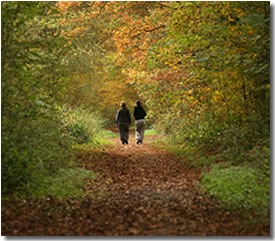Out of the brightness of his presence clouds advanced,
with hailstones and bolts of lightning. – Psalm 18:12
If you’re anything like me, you’ve been enjoying the summer thunderstorms that we’ve been having these past few days in Colorado (at least, if you're IN Colorado). Sure, it’s been oppressively hot. Sure, we’ve had to scurry inside with our kids and cut play dates at the pool short as the storms advance over Pike’s Peak. Yet, at the same time the lightning shows have been incredibly impressive, the booming thunder shaking the windows and reminding us how small we are in this vast world God has created.
I wish I could appreciate the storms in my own life with the same kind of laid-back acceptance and anticipation of beauty.
I’ve been reading Psalm 18 a lot recently. Okay, that’s not entirely true. I’ve been reading the “rescuing” parts of Psalm 18. The parts where God says He’s going to show up, or that He will rescue me because He delights in me. You know, the good parts.
The parts I haven’t been reading? The parts about His anger. Or the parts about how He shows up with smoke from His nostrils, or a consuming fire from His mouth. The parts where the Psalmist exalts because he got to crush all His enemies with God’s help. The parts where God shows up in darkness. Darkness, for goodness’ sake.
“He made darkness his covering, his canopy around him—the dark rain clouds of the sky,” the psalmist sings, probably in a throaty bass.
Last summer was full of thunderstorms, too. I remember, because I always ended up driving in them, somehow. And I was reading Psalm 18, then, too (I’m a slow study sometimes.)
Full of thunderstorms—and hail. Which meant hail damage. Not only to our poor, beleaguered vegetable garden, but to our roof. On one particularly bad afternoon of hail, my car took some serious wounding.
This was not okay with me. I had been crying out to God about some other situations in our lives, and more damage to our property simply didn’t seem like a good thing. We were in a tight situation financially, and we had a daughter’s college bills to pay. We needed some rescue, and we needed it now. More storms just didn’t seem like the answer to prayer.
Funny enough, though, they were. The morning that I spent meditating on Psalm 18:12, angry at God for His seemingly nonchalant sense of irony, was the same morning that our insurance adjuster told us how much insurance money we’d get for the hail damage to my car. It was enough to fix the majority of the denting and pay our bills.
God smirked at me. With hailstones and bolts of lighting, He repeated to me.
Okay, okay. I get it.
And here we are again. Another summer of storms. I’m guessing that I’m not the only one embroiled in them, whether they’re the physical drenchings we’ve had over the past week or the kind of spiritual or emotional maelstroms that seem to strike out of nowhere, leaving you breathless and confused.
He makes darkness His covering.
I appreciate Psalm 18. It’s full of delight and victory and truth and life. But it’s also full of the contradictory methods of God, the ways that He shows up in the darnedest places, with the most unconventional methods, that seem a lot more like killing our tomato plants and scaring our dog than caring for our hearts.
But at the same time, He’s coming. He’s here in the darkness with us, and the storms. He’s parting the heavens and coming down, because He said He would never leave us or forsake us, and He’s really good at keeping His word.


 as a Texan I am used to April being warm; the time in Wales was chilly and wet. Daffodils did dot the countryside, fields of yellow shining through the rain. Yet I kept wishing for a little warmth, a little sun.
as a Texan I am used to April being warm; the time in Wales was chilly and wet. Daffodils did dot the countryside, fields of yellow shining through the rain. Yet I kept wishing for a little warmth, a little sun. 
